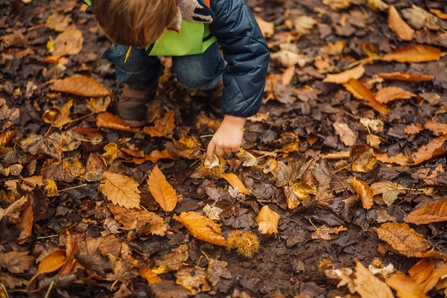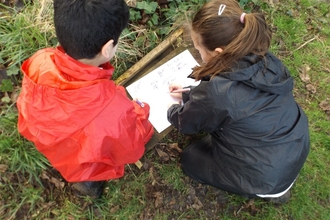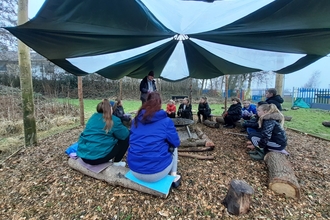Make a difference to your pupils' mental health and wellbeing
This year has seen a huge push from schools to incorporate outdoor learning into their timetables. The aftermath of Covid-19 and the resulting worry, anxiety and uncertainty facing pupils as they return to school has made it even more important than ever to be aware of their mental health, wellbeing, and social skills alongside education catch up.
But, while it may have seemed relatively easy to incorporate time away from the classroom on warm, sunny days, the challenges faced when it is colder and wetter can be more difficult to overcome, especially for those in greatest need.
St Cecilia's Catholic Junior School
What if pupils don’t have the right footwear or a warm, waterproof coat? Consider asking parents to donate outgrown boots and waterproof items to the school to build up a supply of wet weather clothing for pupils who do not have their own.
What if they don’t want to go outside when it is raining? Make it fun, if you are excited about it, they will be too. Afterall, who doesn’t want to go outside to splash in puddles!
What if they get cold and wet? Limit the amount of time spent outside in one go – it doesn’t have to be a whole lesson. Five minutes spent running round the playground or a quick dash to collect leaves and twigs for a science lesson is great.

Helena Dolby
Since 2019 Nature Friendly Schools has worked with 180 primary, secondary, special and alternative provision schools in some of the most disadvantaged areas of England helping to overcome these barriers with fantastic results.
Teachers have told us that children who struggled in a conventional classroom “came alive” when outdoors, and “developed leadership, communication and inter-personal skills they have never shown us before”. They also told us that “all children feel they have achieved something” after outdoor learning, and that “children with very complex needs shine being outside, they have developed in confidence, worked well in groups and taken on responsibilities”.
The 2021 Natural England Children’s People and Nature Survey for England revealed that 85% of children said that being in nature made them heel happy yet just only 16% of children aged 8-11 and 11% aged 12-15 have daily access to nature outside their own garden. Not being able to go out alone and bad weather were the main reasons children gave for not being able to visit green spaces.
This is why Nature Friendly Schools believes that every child should be given the opportunity to learn outside the classroom at school.
Furthermore, the Defra Landscapes Review 2019 proposes every child should be given the opportunity to spend a night under the stars which is why Nature Friendly Schools is working with all school types to offer overnight residential trips to pupils most in need.
By the end of the project in March 2022, Nature Friendly Schools will have supported 48,000 children and 720 teachers. The programme will have greened nearly 180 school grounds, delivered more than 790 hours of continual professional development training, taken 1,037 pupils on overnight residential trips, and provided outdoor clothing, equipment and learning aids to 180 schools.
Now we are asking YOU to make a difference to your pupils’ mental health, wellbeing and social skills, by committing to taking your class outdoors at least once a week – whether it is to take the register, view the changes in seasons or to simply wrap up at the end of a lesson. Just a short time spent outdoors will allow pupils to return to the classroom feeling refreshed, energised and better able to concentrate on the tasks ahead.



